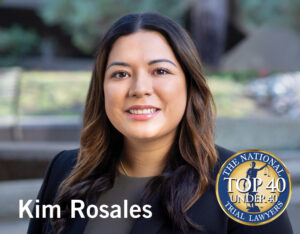Medical providers use improper billing codes to fraudulently maximize Medicare and Medicaid payments.
Several popular fraudulent scams involving Medicare and Medicaid center around the use of improper billing codes. To comprehend the scam, it is necessary first to understand the complex system of numerical codes by which medical providers bill Medicare and Medicaid.
Each medical procedure and diagnosis is assigned a different numerical code on the computer-generated bills prepared by the medical providers. Those bills are forwarded to “intermediaries” or “carriers” — large insurance companies retained by the government to process the bills and make payment to the medical providers with government funds. The amount received by a medical provider is determined by the particular procedure and diagnosis codes contained in the provider’s bill.
Medical provides may overbill by unbundling medical procedures and charges that should be billed together at a lower rate.
One common type of fraud in the coding process is known as “unbundling” or “fragmentation.” Medicare and Medicaid routinely pay a lump sum reimbursement rate for a group of procedures that are usually performed together; the reimbursement rate is lower than if the same tests had each been performed separately.
A typical example involves blood test panels conducted by clinical laboratories, in which single blood tests are used to test for several different things. To increase their profits, some health care providers “unbundle” the combined tests into separate “fragments” and bill separately for each element of the group, resulting in higher reimbursement rates.
Examples of unbundling include the following:
- In August 2007, Maryland cardiologist Pradeep Srivastava agreed to settle claims of Medicare fraud against him for a total of $476,000. Srivastava allegedly committed Medicare fraud over a period of three and a half years.
- The allegations against Srivastava included billing for services that he did not provide; upcoding, or billing for a level of service higher than that provided to the patient; and “unbundling,” or billing separately for the component parts of a procedure rather than using the appropriate comprehensive CPT code.
- Genesee Valley Cardiothoracic Group was accused of fraudulently billing Medicare for services of assistant attending surgeons to be present during surgery. Because there were qualified cardiothoracic residents present, however, Medicare regulations prohibited charging separately for assistant attending surgeons.
- Billing separately for the assistant attending surgeons constituted false claims under the federal False Claims Act, claimed the government. Genesee Valley Cardiothoracic Group agreed to settle the claims against it for $2 million.
- The whistleblower, who brought the qui tam lawsuit that brought this fraud to light, was entitled to share in the ultimate recovery.
Medical providers have a financial incentive to unbundle charges.
By unbundling the various components of a medical treatment and billing for them separately, medical providers fraudulently recover higher reimbursement from Medicare and other programs. Whistleblowers can help bring such fraud to light.





